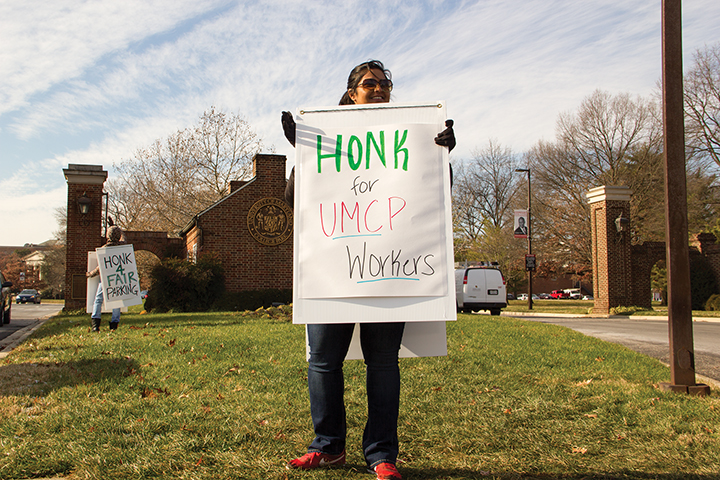Views expressed in opinion columns are the author’s own.
It seems the COVID-19 era at the University of Maryland is soon coming to a close. Per the university’s announcements, due to the overwhelming vaccination numbers in our campus community, it seems the fall semester will be an almost complete return to normalcy compared to the university’s pandemic procedures this past year. While most summer classes have remained virtual, the university has announced the majority of fall classes will revert to being held in person.
All of this is a cause for celebration. Although there were several bumps along the road, the campus remained relatively safe during the past year — mostly due to vigilant efforts by faculty and staff, including adapting to teaching online, regularly deep-cleaning campus facilities and making sure large testing and vaccination events ran smoothly. Faculty and staff should be applauded for their work and deserve certain concessions from their employer, the university, in return for their efforts. These concessions have already been made clear to the university administration, and it’s time to implement them.
More than 500 university employees signed a petition asking the administration to expand access to telework and keep social distancing measures in place at least through the summer term. Child care and transportation concerns were specifically cited as barriers to reporting to work in person, especially considering the closure of the College Park Metro station until September and lack of affordable child care options, specifically those offered by the university.
These demands won’t only continue to help keep everyone on the campus safe through the summer and fall, they’re options employees deserve. Many staff members put their own health at risk by reporting to work in person during the past academic year. The university needs to acknowledge this in a substantive way, and satisfying these requests now is an important way to do that.
How the university responds to these demands will be telling of their attitudes toward their workers. They are not exorbitant — in fact, the university has previously attempted to address some of them. Rejecting them would be indicative of an environment where workers’ sacrifices and concerns are unappreciated and dismissed by administration.
While the administration handled COVID-19 well for the most part, its plans would have amounted to nothing if its faculty and staff did not deliver. The administration greatly relied on its workers to execute their plans, and denying them these simple incentives would be disrespectful of the tremendous work they put in to make the university’s COVID-19 response successful.
The petition also touches on the fact the pandemic will continue to affect our lives for the foreseeable future. The petition argues restricting telework “ignores effects of the pandemic that still rule over many aspects of our lives.” And it’s true — despite what it may feel like, the pandemic is not completely in our rearview mirror yet, and staff will have to continue to work to prevent the spread of the virus on the campus.
While the future undoubtedly looks bright, the long-standing economic and health effects of the pandemic will still limit child care and transportation options in the near future. The university’s response to the petition will also reveal their attitudes toward dealing with the coronavirus moving forward. It will be difficult to justify rejecting these requests without arguing they aren’t necessary and implying arguing against the idea that the pandemic will continue to affect our lives.
The decision is clear: The university administration needs to back up its employees on this. The demands themselves are reasonable and indicative of how most workplaces will adapt post-pandemic. Either response will be equally telling as to how the university views the contributions and sacrifices of its workers.
Adam Cullen is a junior government and politics major. He can be reached at acullen@umd.edu.



